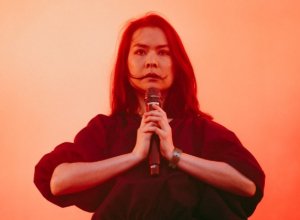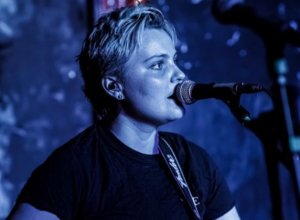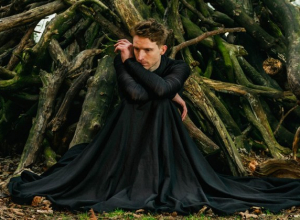Celebrated Flamenco Guitarist Paco De Lucia Dies in Mexico
By Lauren James in Music / Festivals on 26 February 2014
The world-renowned Spanish guitar player suffered a heart attack.
Paco de Lucía, the world-famous Spanish guitarist, has died suddenly and unexpectedly whilst he was on a beach in the Mexican city of Cancun. The 66 year-old Spanish-born musician is said to have been playing on the beach with his children when he suffered a heart attack.
Paco de Lucia, renowned Spanish flamenco guitarist, dies in Mexico at 66: http://t.co/0oaP06uadD pic.twitter.com/xmiOyWGNta
— Yahoo (@Yahoo) February 26, 2014Considered one of the most talented musicians in the world, De Lucía had lived in both Mexico and Spain in recent years. Mayor Jose Ignacio Landaluce of Algeciras, De Lucía's birthplace in Spain, has announced two days of official mourning, describing the musician's death an "irreparable loss for the world of culture and for Andalusia," according to BBC News.
Born Francisco Sanchez Gomez in 1947, Paco was the son of flamenco guitarist Antonio Sanchez, who had gypsy heritage. De Lucía took his stage name in honour of his mother, Lucia Gomes. De Lucía has spoken of his natural ability for guitar, which he attributed to being immersed in flamenco music from a young age.
"My family grew up with the Gypsies," the guitarist told Guitar Player in 1994, adding "My father and all my brothers played guitar, so before I picked it up, before I could speak, I was listening. Before I started to play, I knew every rhythm of the flamenco. I knew the feeling and the meaning of the music, so when I started to play, I went directly to the sound I had in my ear."
Watch Paco de Lucía's Performance At 2012' Montreux Jazz Festival:
De Lucía recorded his first album aged 18 with Madrileño guitarist Ricardo Modrego. Initially a player of traditional flamenco music, De Lucéa stood out for his remarkable dexterity, strength and extremely fast and fluent playing style and by 1967 he had performed live at the Berlin Jazz Festival. Whilst there, De Lucía was inspired by jazz musicians such as Miles Davis and Thelonious Monk; an influence that stayed with him and impacted his later work.
De Lucío was soon touring Europe with the Festival Flamenco Gitano and he encountered the man with who he would form one of the great musical partnerships of his life: the singer Camaron de la Isla, who died in 1992. After mastering the challenging flamenco technique, De Lucía's talents were applied to classical, jazz and film music throughout his illustrious and highly-regarded career.
In 2004, De Lucia was awarded Spain's prestigious Asturias Prize for Art as the "most universal of flamenco artists" The jury said at the time: "His style has been a beacon for young generations and his art has made him into one of the best ambassadors of Spanish culture in the world."
Contactmusic
Suggested

Leisure Festival - Dreamland in Margate
On the same day that Glastonbury welcomed back Margate's adopted sons, The Libertines, Margate itself put on it's very own Leisure Festival as it...

Pretty Fierce talk to us about collaborating with Doja Cat, emetophobia, arena tours and staying "true to yourself" [EXCLUSIVE]
Sheffield's very own all girl group Pretty Fierce are still on a high after the recent release of their debut single - 'Ready For Me'.

Will Varley & Jack Valero - The Astor Theatre Deal Live Review
Three nights before the end of his current tour Will Varley returned to his home town of Deal to delight a sold out crowd in The Astor Theatre.

WYSE talks to us about her "form of synaesthesia", collaborating with Radiohead's Thom York and the prospect of touring with a band [EXCLUSIVE]
With only a few days to go before Portsmouth based songstress and producer WYSE releases her new single, 'Belladonna', we caught up with her to find...
Advertisement

Bay Bryan talks to us about being a "wee queer ginger", singing with Laura Marling and being inspired by Matilda [EXCLUSIVE]
Colorado raised, Glasgow educated and Manchester based Bay Bryan is nothing if not a multi-talented, multi-faceted artist performing as both...

Keelan X talks to us about staying true to "your creative vision", collaborating with Giorgio Moroder and being "a yoga nut" [EXCLUSIVE]
Former Marigolds band member Keelan Cunningham has rediscovered his love of music with his new solo project Keelan X.
![Luke De-Sciscio talks to us about having the courage to be yourself, forgiving that which is outside of one's control and following whims [EXCLUSIVE] Luke De-Sciscio talks to us about having the courage to be yourself, forgiving that which is outside of one's control and following whims [EXCLUSIVE]](https://images.contactmusic.com/images/home/homepage/luke-de-sciscio-abof-a.jpg)
Luke De-Sciscio talks to us about having the courage to be yourself, forgiving that which is outside of one's control and following whims [EXCLUSIVE]
Wiltshire singer-songwriter Luke De Sciscio, formally known as Folk Boy, is set to release is latest album - 'The Banquet' via AntiFragile Music on...

Annie Elise talks to us about the challenges a female producer has to face and "going through a year of grief and sickness" [EXCLUSIVE]
Electronic music pioneer and producer Annie Elise says that the release of her first EP - 'Breathe In, Breathe Out' feels "both vulnerable and...
Advertisement
